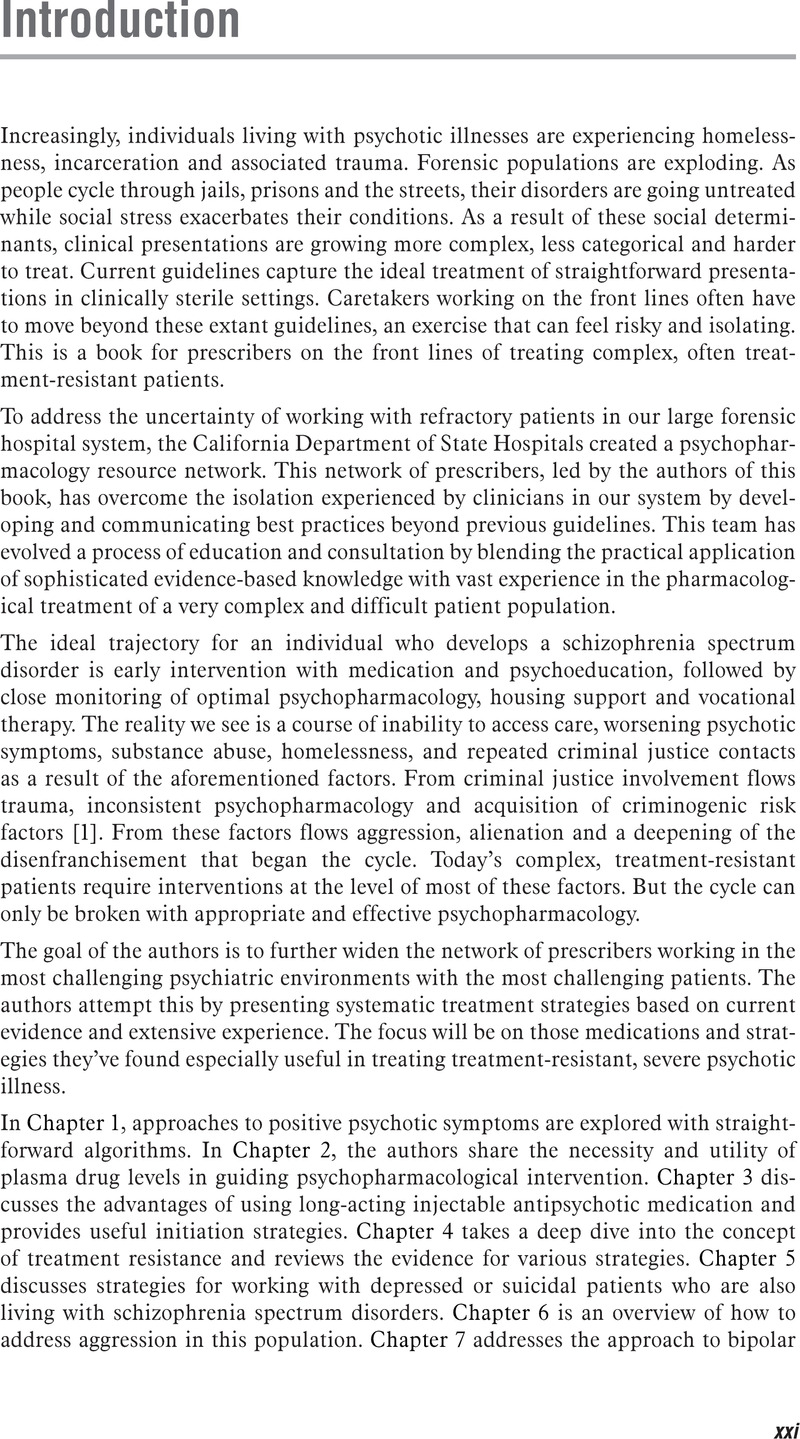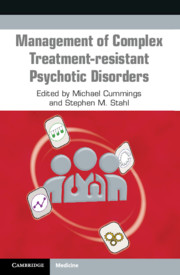Book contents
- Management of Complex Treatment-Resistant Psychotic Disorders
- Management of Complex Treatment-Resistant Psychotic Disorders
- Copyright page
- Contents
- Contributors
- Acknowledgements
- Abbreviations
- List of Icons
- Introduction
- Part I Treatment Strategies
- Part II Medication Reference Tables
- Appendices
- Index
- References
Introduction
Published online by Cambridge University Press: 19 October 2021
- Management of Complex Treatment-Resistant Psychotic Disorders
- Management of Complex Treatment-Resistant Psychotic Disorders
- Copyright page
- Contents
- Contributors
- Acknowledgements
- Abbreviations
- List of Icons
- Introduction
- Part I Treatment Strategies
- Part II Medication Reference Tables
- Appendices
- Index
- References
Summary

- Type
- Chapter
- Information
- Management of Complex Treatment-resistant Psychotic Disorders , pp. xxi - xxiiPublisher: Cambridge University PressPrint publication year: 2021

